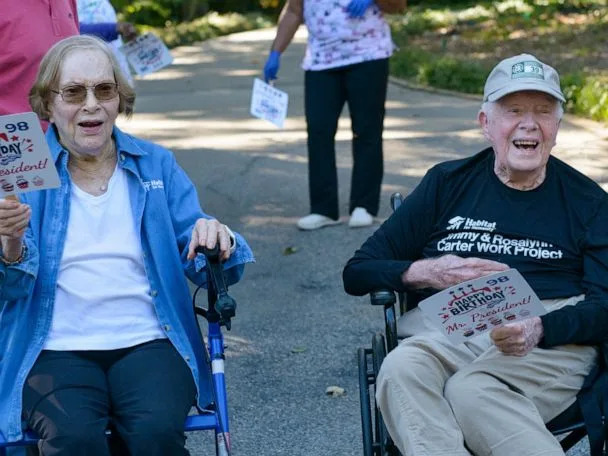South Florida Sun Sentinel
Floridians stunned by Citizens Insurance ‘depopulation’ letters
Ron Hurtibise – September 25, 2023
Tens of thousands of customers of Florida’s state-owned Citizens Property Insurance Corp. are getting a stunning surprise in their mailboxes.
It’s a letter from Citizens’ “Depopulation Unit” stating their policies have been assumed by a private-market company.
Cause for celebration? Not if the private company’s estimated annual premium is higher than what the policyholder is paying Citizens.
Delores Smerkers, a Davie retiree, said her Citizens policy renewed in July for $5,523 — $650 more that what she paid last year. Less than two months later, in late August, she received a letter saying her coverage was being assumed by Safepoint Insurance Co.
The letter stated that her estimated cost to renew her Safepoint policy will be $6,650 — an increase of $1,127.
That’s a substantial price hike, but because it’s less than 20% above her Citizens premium, she is ineligible to reject the offer and stay with Citizens.
Smerkers says she doesn’t know how many more insurance price hikes she and her disabled husband can endure as they try to live out the remainder of their lives in the modest 1,750-square-foot villa they bought new in 1978.
“It’s a shame,” she said. “People on fixed incomes are hurting the most. We’re not rich. We worked like dogs all our lives. Now look at where we are at.”
More than 300,000 Citizens policyholders are getting letters stating that their policies have been selected for removal in October by one or more of five private-market companies.
Targeted policyholders are ineligible to remain with Citizens if their letter identifies a private company’s “estimated renewal premium” that’s less than 20% over Citizens’ estimated renewal premium for comparable coverage.
But if all estimated renewal premiums exceed 20% of Citizens’, the policyholder can opt to remain with Citizens by logging onto the company’s website or asking their insurance agent to make the selection for them.
Removal is automatic for those who don’t take action
October marks the first of two depopulation efforts. Another is scheduled in November.
Five companies have been approved to take 184,000 policies from Citizens in October: Florida Peninsula (up to 19,000 policies), Monarch (10,000), Safepoint (30,000), Slide (100,000) and Southern Oak (25,000).
Letters sent to selected policyholders state that the transfer will take place on Oct. 17 unless the policyholder selects another option by Oct. 5. But the Oct. 5 deadline was moved to Oct. 10 after a vendor handling the mail-outs fell behind, leaving some recipients with only a couple weeks to act.
Of 311,250 policyholders informed that they’ve been selected for takeout in October, 99,500 have so far elected to remain with Citizens, according to data provided by Citizens spokesman Michael Peltier. Just 9% — 28,750 — have selected a private company. And the majority, 183,000, have not yet registered a selection.
Anyone who fails to make a selection will automatically be transferred on Oct. 17 to the private company identified in their letter with the lowest premium, Peltier said.
Targeted policyholders don’t have to pay more now
Some policyholders who have received a depopulation letter say they were confused about the estimated renewal premiums identified in the letter.
The premiums are just estimates of the following year’s insurance costs and don’t have to be paid right away. Even if a policyholder accepts the transfer, the coverage remains in place at the current Citizens rate until the policy expires.
In Smerkers’ case, she won’t owe the new $6,650 premium until her Citizens policy is set to expire in July.
Deerfield Beach resident Jeff Torrey said it took a phone call to his agent to clarify that he didn’t owe more money immediately.
He received a letter in mid-September saying Slide was assuming his policy on Oct. 17 and that he was ineligible for Citizens because Slide’s estimated renewal premium was nearly $1,000 more but $185 under the 20% threshold.
“I thought come Oct. 17, I was going to have to pay more,” Tolley said in an interview. The agent told him “the letter is not very clear. It’s confusing.”
In addition, those estimates could change prior to the policy renewal date, and that could change policyholders’ eligibility to remain with Citizens.
Policyholders currently ineligible to remain with Citizens are advised to wait until 90 days before their policies are set to renew with the new company and then look at the difference between the actual renewal rates at that time. If the difference falls below 20%, the policyholder will be eligible to return to Citizens.
Steve Rogosin, a Plantation-based insurance agent, said 55 of his clients have received depopulation letters and of those, only half are currently eligible to remain with Citizens.
“I tell them to carefully read the offer, and then on an individual basis, we help them make their decision,” he said.
Most who remain eligible to stay with Citizens are choosing to do so, he said. Other options are available beyond the private companies identified in the letters, but “they’re not cheaper than Citizens,” he said.
Brian Murphy, co-owner of a Brightway Insurance agency in Palm Beach Gardens, said one of his clients who’s currently paying $4,400 for his Citizens policy received a letter estimating the new company would charge him $8,200 when it comes time to renew his policy.
“So he gets to stay in Citizens,” Murphy said.
New law will make more ineligible to stay in Citizens
The current round isn’t like recent depopulation efforts.
What’s new is the 20% threshold. It’s being used to reduce the number of policies held by the state’s “insurer of last resort.”
Citizens’ board of governors and legislators that oversee the program have become anxious in recent years about the company’s renewed growth. As private-market companies stopped writing policies or were driven to bankruptcy, Citizens’ policy count increased from 420,000 in 2019 to 1.4 million currently.
Such a large number of policies sets off alarm bells, because if a major hurricane wipes out Citizens’ ability to pay claims, the company will have to levy surcharges and assessments to make up the shortfall.
Citizens’ policyholders would first face surcharges of up to 45% of their premiums.
If that’s not enough, a special assessment would be imposed to collect 2% of the cost of every homeowner, auto, specialty and surplus lines policy in the state.
And there’s more. If those two levies don’t generate enough, Citizens has the right to impose on all policies — Citizens and private-market — an emergency assessment of up to 10% for each of Citizens’ three accounts.
Until this year, Citizens customers targeted for removal could opt out for any reason.
And that worked for awhile, as a 10-year stretch without a major hurricane making landfall in Florida enabled some private-market companies to offer rates lower than Citizens.
But over the past five years, the private insurance market has hemorrhaged tens of millions of dollars, forcing companies to raise their rates far above Citizens.
Citizens, in turn, was prohibited from keeping pace by raising its rates more than an average 10% each year.
Last year, the state Legislature enacted the 20% threshold and put Citizens on a path to increase rates by increasing the rate cap by a percentage point a year until it reaches 15% in 2026.
More companies signal an improved insurance market
Murphy said his firm has a team of people answering questions from clients about their depopulation letters.
They’ve haven’t heard many complaints, he said, possibly because clients understand that Citizens is “stretched” and has to depopulate.
But he sees the number of companies willing to assume Citizens policies as a good sign that the market is poised to recover.
A big reason companies are reentering the market, experts say, is that reforms enacted by the state Legislature last year remove enticements for repair contractors and plaintiffs attorneys to file lawsuits against insurers.
Removing those enticements reduces potential for losses and should help convince insurers that they’ll again be able to make a profit in the Florida market, they say.
“Other carriers are coming in with some appetite,” Murphy said. “And I believe we’re going to see more in 18 months.”
Meanwhile, depopulation targets who were able to remain in Citizens shouldn’t get too comfortable. They might soon get targeted again.
Agents are gearing up for a fresh round of depopulation offers to start going out in late September.
Six companies, including the four participating in this month’s round, have been approved to remove up to 196,399 Citizens policies on Nov. 21.
According to letters informing policyholders about the Oct. 17 takeouts, “If your policy is not successfully assumed, you may continue receiving future offers from private-market insurance companies interested in removing your policy from Citizens.”













